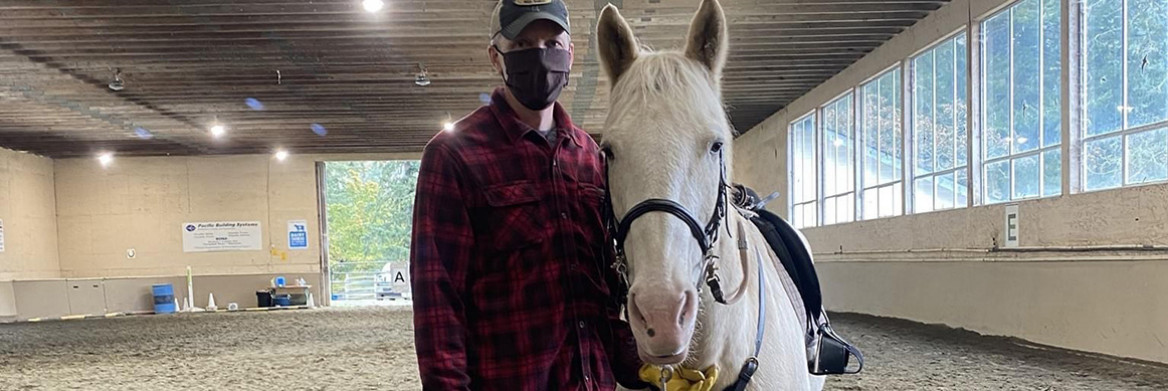After witnessing how horses helped his daughter and other children, RCMP S/Sgt. Chris Swain decided to harness the power of equine therapy for his colleagues and other first responders.
"The horses are so in tune to our emotions, as long as they know they're not threatened they are totally in the moment and there for us,
" says Swain, the operations non-commissioned officer at the RCMP detachment in Duncan, B.C.
Swain was introduced to horse therapy about 15 years ago after his daughter — then aged two —was diagnosed with a muscular disorder.
"The doctors recommended getting her on a horse to help, so that's what we did,
" says Swain, noting his daughter's time around the animals also helped her cope with anxiety as she grew older.
Eventually, Swain decided to volunteer as a horse handler with the Cowichan Therapeutic Riding Association (CTRA). He soon recognized the decision to help others was also helping himself.
"Being a horse handler, I realized I was getting quite a lot out of it,
" says Swain, the CRTA's 2020 Volunteer of the Year.
"It's hard to explain, but they react to your stress levels. For me, I was able to take my mind off other things and just focus on the horse,
" he says.
He felt so strongly about the positive influences of being around the horses that, in 2018, he began organizing one-day sessions for all Duncan RCMP detachment employees.
"I saw it as team building but also as a way to show everyone what I learned by being a horse handler,
" says Swain.
Constables Leanne Szalai and David Grey were among those who attended the sessions, where participants learned about being around horses, walking them and acquiring some basic riding manoeuvers.
"It's so busy here and stress is part of the job, like police everywhere, but being around the horses was calming,
" says Szalai.
Grey, who admits he was not into horses or big animals, attended the session and came away with a new perspective.
"The horse was a little bit skittish, but staff worked with me, gave me some tips, and eventually I was able to work with a horse,
" says Grey. "It's amazing how they pay attention to you and it is kind of relaxing.
"
Helgi Sangret, head instructor at the non-profit CTRA, says horses react to people honestly.
"Horses are like a mirror into ourselves,
" she says. "If you're fidgety, the horse may respond the same way. If you use the horse as a tool, it gives you the chance to look inward and ask yourself: Why am I acting a certain way and what do I need to do to change?
"
Swain has worked with Sangret and others from the War Horse Project — another horse-therapy initiative — to develop and deliver a program for first responders on Vancouver Island.
"It filled up fast, but COVID scuttled our plans to do it last year,
" says Swain, who is optimistic they will go ahead in 2021.
